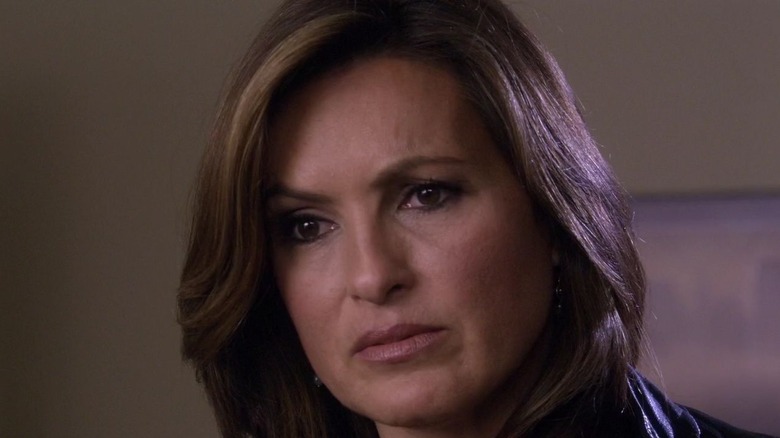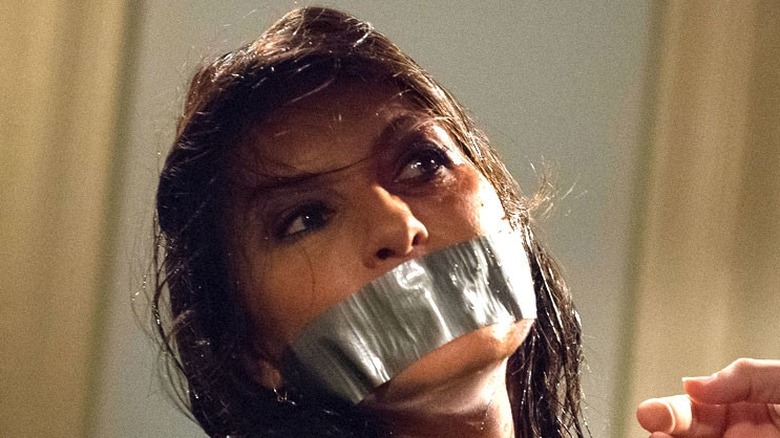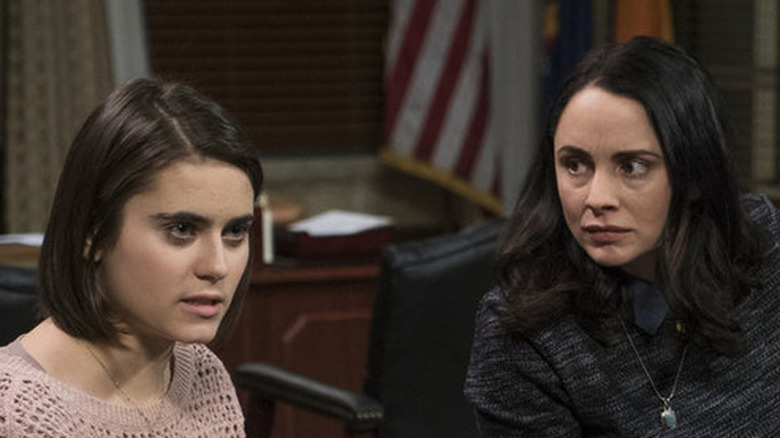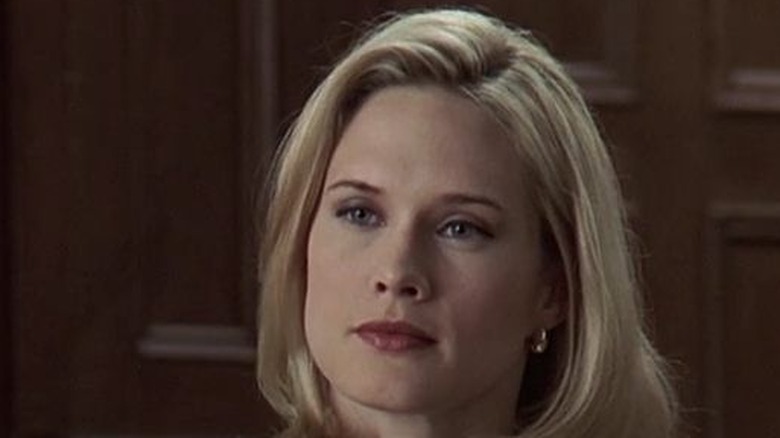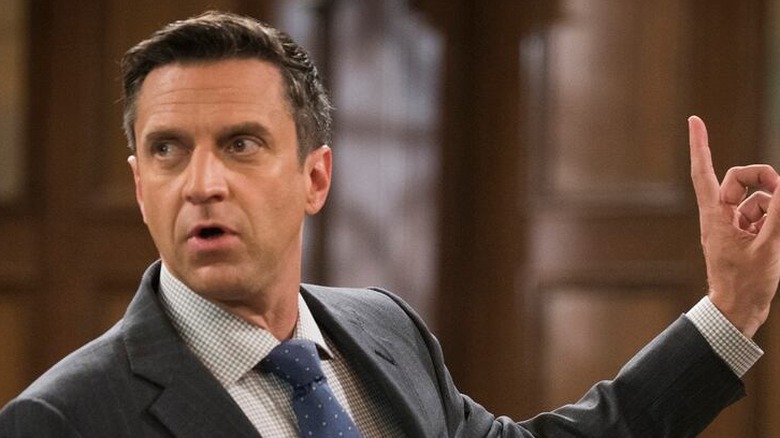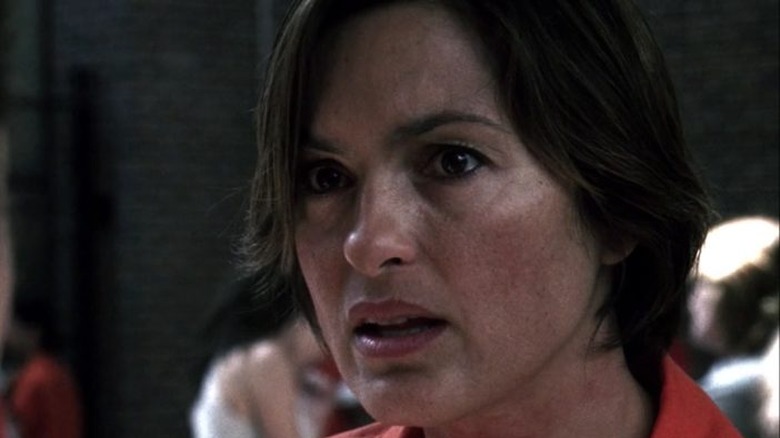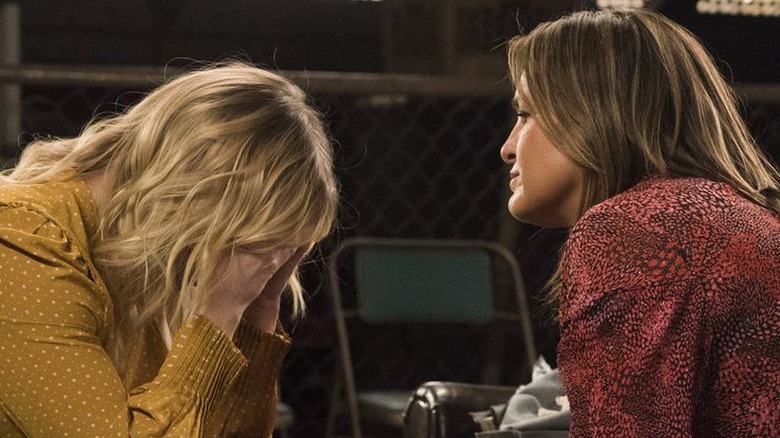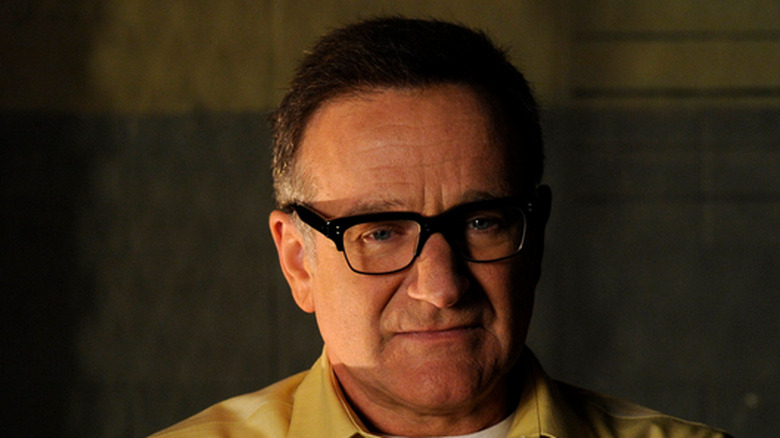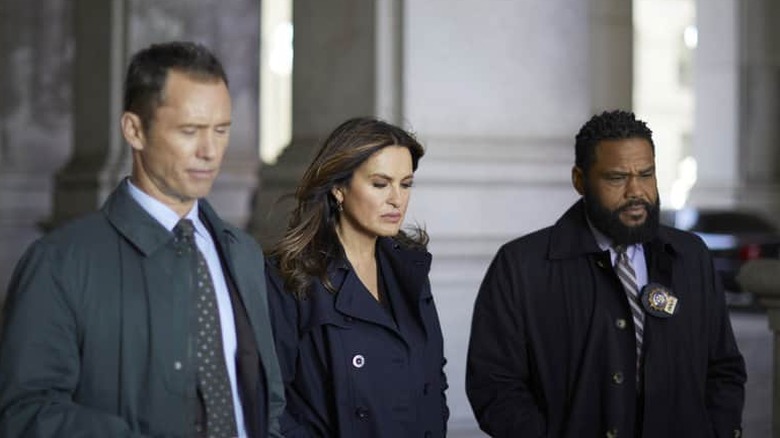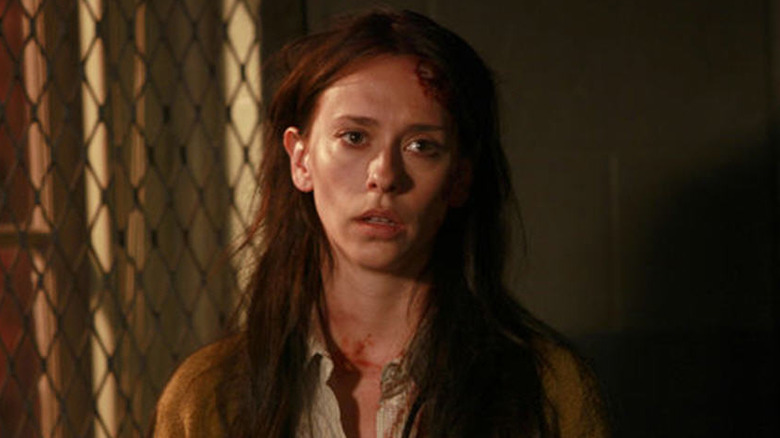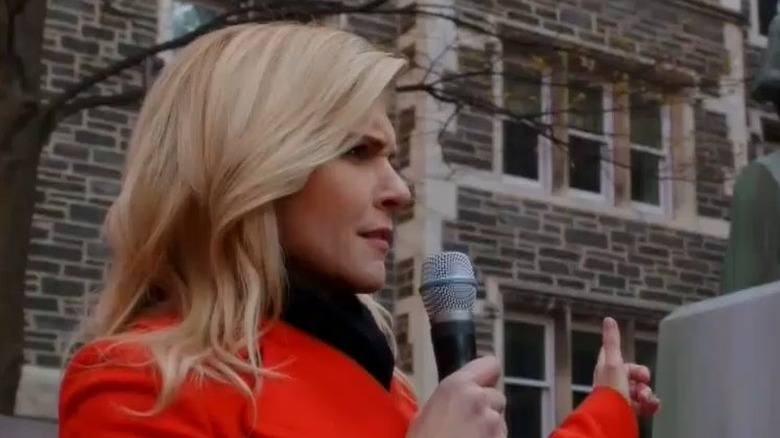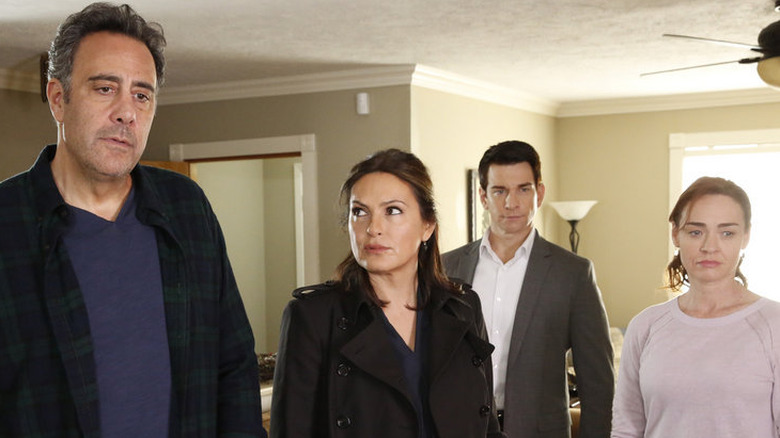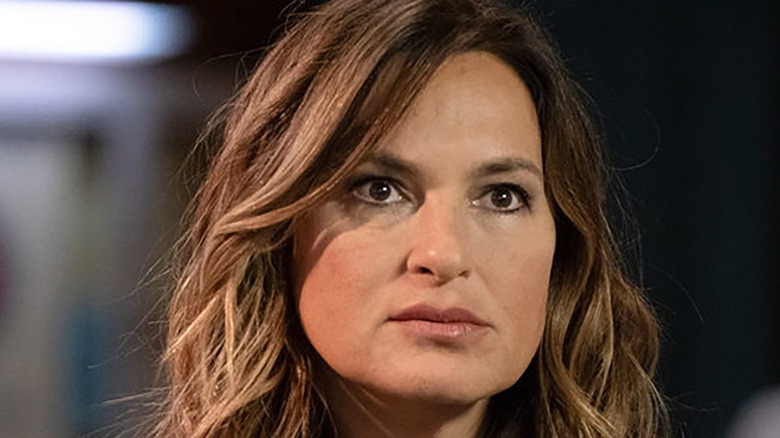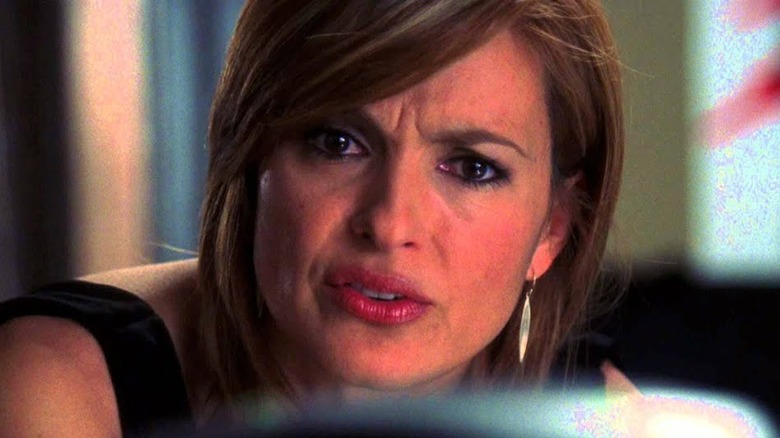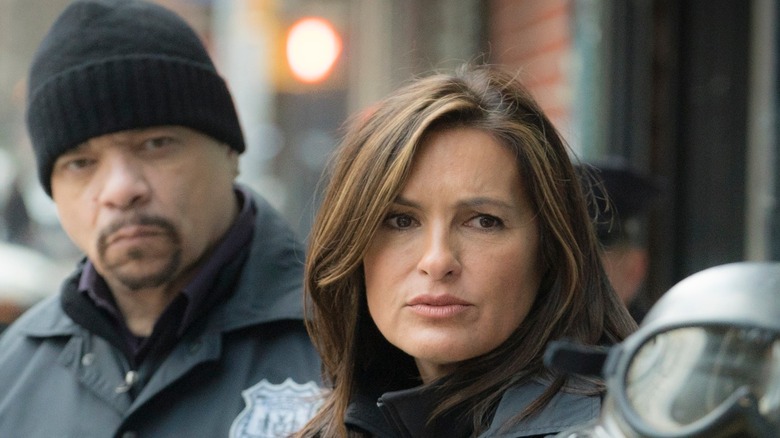The 7 Best And 7 Worst Mariska Hargitay Law & Order Episodes Ranked
The "Law & Order" franchise has featured many memorable characters since the original "Law & Order" show first aired in 1990. Few, however, are as beloved as Olivia Benson, played by actor Mariska Hargitay.
Hargitay's Benson serves as the lead on "Law & Order: Special Victims Unit," but has appeared in half a dozen primetime shows, including multiple "Law & Order" shows, as well as "Chicago P.D." and "Chicago Fire." Her work portraying the character across all these series has won Mariska Hargitay a Primetime Emmy Award.
Olivia Benson has been a lead character on "Law & Order: Special Victims Unit" since it premiered in 1999, and has appeared in almost every episode of the show's long run. Beginning with Season 21 of "Law & Order: Special Victims Unit," Benson became the longest-running live-action character of all time on a primetime show. During this time, Benson has been an integral character in many phenomenal episodes, as well as a handful of not-so-great storylines. Here's a look at her best — and worst — appearances.
Best: Surrender Benson (Law & Order: Special Victims Unit: Season 15, Episode 1)
"Surrender Benson" picks up just after the finale of "SVU" Season 14, and brings back guest star Pablo Schreiber as the violent serial rapist William Lewis. In the final moments of the previous season finale, "Her Negotiation," Lewis is shown holding Benson at gunpoint, and "Surrender Benson" begins with her as his hostage. Lewis plans on killing Benson as revenge for her investigation on him in the previous episode, but not before forcing her to witness several terrible crimes.
This episode is notable in that it's one of the few times that the typically non-violent Benson is pushed to violence. Midway through, Benson is able to escape and takes Lewis hostage. But instead of immediately calling the police, she decides to hurt him first, eventually hitting him several times with a lead pipe. The episode strikes a lot of emotional nerves thanks to incredible performances from Mariska Hargitay and Schreiber, and their scenes together are equal parts enthralling and horrifying. The events of "Surrender Benson" result in Benson suffering from severe PTSD that informs a lot of her character decisions for the next few seasons, making the episode a must-watch for fans.
Worst: Devastating Story (Law & Order: Special Victims Unit: Season 16, Episode 18)
"Devastating Story" is loosely based on the controversy around a 2014 Rolling Stone article titled "A Rape on Campus," which was later retracted after investigations showed the information in the article to be false and/or slanderous. The episode follows the story of a college student who goes on a fictional television series called "America's Worst Crimes" and tells the story of her brutal sexual assault, committed by several members of a fraternity. However, once the SVU team begins to investigate, they realize there are a lot of holes in the woman's story, and eventually discover that much of it was fabricated.
Unfortunately, like many of "Law & Order's" attempts to recreate real headline stories, "Devastating Story" fails to hit the mark due to many oversimplifications and certain frustrating dramatizations. While the major plot beats of "Devastating Story" loosely line up with the real event, certain additions to introduce plot twists make the story fail to ring true. For instance, the episode has the college student tell her story after being coerced by a school counselor who is trying to further an anti-fraternity agenda on campus, giving the story a firmer villain, but a less believable scenario.
Best: Loss (Law & Order: Special Victims Unit: Season 5, Episode 4)
"Loss" starts out like any typical episode of "Law & Order: Special Victims Unit," but by the end of the tense hour, the case that SVU is investigating ends up having some far-reaching consequences. "Loss" begins with the SVU team being put on the case of an undercover officer who was sexually assaulted and murdered. They discover pretty quickly that Raphael Zapata, a drug trafficker that the officer was investigating, is behind her murder. Things start to get much more intense after ADA Alexandra Cabot makes an offhand insult about Zapata's manhood during a deposition.
After lashing out at Cabot in court, Zapata sets in motion his plans to have her killed, and also has her confidential informant killed by a car bomb. Just when it seems like Zapata might cease to be a threat after he's convicted, he orchestrates a drive-by shooting that gravely injures Cabot, leading the SVU team to believe she's been killed. While it's revealed later in the episode that her death was faked, it's still an emotional exit for actor Stephanie March, who had been a series regular since Season 2.
Worst: Imposter (Law & Order: Special Victims Unit: Season 18, Episode 3)
"Imposter" follows the SVU team's attempts to try to prosecute a "rape by fraud" case against a man who pretends to be a college admissions counselor in order to trick women into sleeping with him to give their children a better chance at getting into college. The case is spearheaded by Benson, who tries to convince the man's victims to pursue legal action, eventually convincing one mother. While the episode brings up some interesting moral quandaries, there are several aspects that didn't sit well with many fans, making this one of "Law & Order: Special Victim Unit's" lowest-rated episodes on IMDb.
For instance, Benson's relentless insistence that the victims testify against their perpetrator, despite their reluctance, feels exploitive at times, putting victims in the public crosshairs in order to further an agenda that Benson and ADA Raphael Barba are trying to push. Finally, the victim's son dying by suicide at the end feels like an emotionally manipulative moment built for shock value, ending the episode on a sour note.
Best: Undercover (Law & Order: Special Victims Unit: Season 9, Episode 15)
"Undercover" sees Olivia Benson going undercover in a women's prison to discover the identity of a prison guard who has been sexually assaulting the inmates. What follows is one of the show's most uncomfortable and tense episodes, with Benson trapped in a vulnerable position, especially after the prison is locked down following a tuberculosis outbreak. Benson is able to identify the perpetrator, but only after being nearly raped herself.
The episode is powerful for a multitude of reasons, not the least of which is the personal investment the viewer has by seeing Benson placed in such a dangerous place with very little backup, and provides a surprising twist when the rapist turns out to be the captain and not the guard they had originally assumed it was. The episode also showcases Benson's selflessness, as she is willing to put her own life on the line to try to protect the other inmates in the prison and bring the rapist to justice. "Undercover" also helps to highlight the lack of voice and agency experienced by many prisoners.
Worst: Part 33 (Law & Order: Special Victims Unit: Season 20, Episode 14)
One of the few times "Law & Order: Special Victims Unit" has come close to airing a bottle episode, "Part 33" takes place over the course of a single day, as the members of the SVU team are awaiting their time to testify in a trial they don't agree on. The case involves a woman who shot her husband, a former cop, to death. She claims that he was abusive, but never physically harmed or threatened her. Benson is on the fence about how she wants to try to color her testimony, while her teammates Carisi and Rollins try to convince her of their own individual opposing opinions.
Unfortunately, everything interesting the episode has to say gets said in the first ten minutes, with the rest of the episode just involving the increasingly angry Carisi and Rollins reiterating their opinions with more and more emotional upset, making the whole thing feel like a frustrating cycle of more of the same, despite some strong performances. In addition, a major element of the episode involves the fact that Carisi knew and hated the victim prior to his shooting, undermining his arguments that the victim deserved to die.
Best: Authority (Law & Order: Special Victims Unit: Season 9, Episode 17)
When "Law & Order: Special Victims Unit" manages to pull in a name as big as Robin Williams to guest star in an episode, the script really needs to be up to par to match the talent, and "Authority" really delivers on that front. In "Authority," Williams plays a man who calls different stores posing as a police officer and tries to convince their managers to do horrible things to women that work for them. Things get even more twisted when his character, Merritt Rook, decides to represent himself in court and convinces people that he's an activist trying to get people to stop blindly accepting authority.
The episode works in part due to Williams' impressive performance as Merritt Rook. At times, his tragic backstory (which involves the death of his wife at the hands of a careless doctor) and charismatic arguments against authority make him difficult not to root for, until his more sinister sides start to show again. After he kidnaps Benson and tries to force Christopher Meloni's Elliot Stabler to torture her, Stabler earns his respect by rejecting his demands.
Worst: Black and Blue (Law & Order: Season 21, Episode 10)
Mariska Hargitay's Olivia Benson guest-starred on the "Law & Order" Season 21 episode "Black and Blue." Sadly, it's one of "Law & Order's" lowest-rated episodes among fans, with an IMDb rating of 6/10. The episode tells the story of a police officer with a history of racism that was shot and killed by a Black woman who states that she was surprised by him in an alleyway. The case challenges the characters in different ways, and places EADA Nolan Price in a difficult position as he tries to find a fair balance while prosecuting the case.
The episode actually presents a lot of interesting viewpoints and challenges on the tense and poignant subject of the relationship between many Black Americans and the police. Unfortunately, the case itself is a mess. The episode quickly jumps from one point to another, and often contradicts itself. For instance, early in the episode it's established that the perpetrator was holding a gun on another man when the cop pulled up, but later in the court they say she reached for it in her jacket. These inconsistencies are never tackled in the episode and appear to just be mistakes in the script. Sadly, the sloppy writing doesn't provide a satisfying framework for the episode's interesting ideas. It might have worked better in a two-hour special that gave it time to breathe.
Best: Behave (Law & Order: Special Victims Unit: Season 12, Episode 3)
The episode that served as the backdoor pilot for the failed series "Law & Order: Los Angeles," "Behave" is also one of the most compelling installments of "Law & Order: Special Victims Unit." The episode follows the story of Vicki Sayers (played by guest star Jennifer Love Hewitt), who has been stalked and raped across the country multiple times for 15 years, but has never been afforded relief from the criminal justice system due to the insane backlogs of various rape kits that are never investigated.
The episode features powerful performances by Hewitt and Mariska Hargitay, as Olivia Benson tries to convince Sayers that she's safe and can stand up to her attacker in order to help stop him. While certain elements of the episode, such as the intense police harassment, don't hold up quite as well today, the episode still succeeds due to the strong bond that is formed between Benson and Sayers — in the end, she ends up being able to escape her attacker's vicious cycle and save other women from his malignant behavior thanks to Benson's help.
Worst: Info Wars (Law & Order: Special Victims Unit: Season 19, Episode 12)
"Info Wars" sees the SVU team investigating the sexual assault of a conservative female pundit who was holding a rally at the fictional Hudson University. Guest starring "Better Call Saul" veteran Rhea Seehorn, this episode attempts to tackle the dangers of political extremists, but sadly struggles in its attempts to portray either side of the ideological spectrum. After the pundit, Martha Cobb, is sexually assaulted following her rally, the SVU team narrows the suspects down to two men, one liberal and one conservative. Both men have been complicit in spewing hate speech online, and both had a motive for the attack.
The episode never confirms which of the two men assaulted Cobb, and justice is never served. While there is definitely fertile ground to explore when it comes to political extremism, the episode's wishy-washy writing seems more insistent on cramming as many buzzwords into one episode than actually developing its theme, which leads "Info Wars" feeling like it has very little to actually say. Rhea Seehorn's acting is fantastic, but even that can't save "Info Wars" from feeling like an hour of wasted time.
Best: Heartfelt Passages (Law & Order: Special Victims Unit: Season 17, Episode 23)
Continuing the story from the previous episode, "Heartfelt Passages" brings back Gary Munson, a prison guard accused of raping female prisoners. While on trial, Munson discovers his wife is planning to leave him, and before SVU agents Olivia Benson and Mike Dodds can help her get out of the house, Munson takes his wife and Dodds hostage while Benson is outside with his kids. Dodds tries to get Munson's gun away from him, but is shot in the process, and later dies in the hospital.
Andy Karl's final appearance as Mike Dodds on "Law and Order: Special Victims Unit," it's also his best episode during his one-season run on the show. When Munson first takes his wife hostage, he tells Mike to leave, indicating he plans to commit a murder-suicide after the officer goes. Refusing to let that happen, Mike won't leave without Munson's wife, and is killed while trying to save her. Benson blames herself for the incident, believing that if she had stayed inside she might have been able to talk Munson down.
Worst: Guardians and Gladiators (Law & Order: Special Victims Unit: Season 22, Episode 1)
"Guardians and Gladiators" opens with a familiar yet horrifying scene as a white woman at a local park films herself calling the police on a Black man she claims is scaring her child. The cops come and arrest the alleged perp, Jayvon Brown, before noticing another man lying unconscious in the brush nearby. When it's determined that the man was sexually assaulted, Benson and her team are called. Originally, they view Brown as a suspect, but quickly rule him out.
The problem with "Guardians and Gladiators" is that after the opening scene, the episode loses focus. While Jayvon Brown is ruled out early on, he files a complaint that leads to an Internal Affairs investigation into racist practices in the NYPD. This storyline provides the episode with some interesting scenes, but unfortunately the main case still takes up the majority of the running time, and follows a bland investigation that has no resolution at the end. There are also several uncharacteristically stupid decisions made by Benson in this episode, such as not bringing a lawyer to an Internal Affairs interview despite being told to do so.
Best: 911 (Law & Order: Special Victims Unit: Season 7, Episode 3)
"911" follows the story of a young girl, Maria, who is being held in an undisclosed location, but manages to call 911 after taking a cell phone from her kidnapper. The operator puts her on the phone with Olivia Benson, and what follows is one of the most gut-wrenching and harrowing hours of network television ever aired. While the episode is especially hard to watch, everything from the script to the acting and directing is top notch, and fans agree — it's the highest-rated "Law and Order" installment on IMDb.
What makes "911" so compelling is that Maria's side of the story is never shown until the end of the episode, leaving the viewer with only the information she discloses over the phone to Benson. Since Maria doesn't know many specifics, it takes while some time for the viewer to get the full picture of what is happening to her (including the horrible abuse she has endured). Mariska Hargitay gives an outstanding performance here, fighting to save the life of a girl that many on her team believe is lying. If any episode perfectly defines "Law & Order: Special Victims Unit," this is it.
Worst: Intimidation Game (Law & Order: Special Victims Unit: Season 16, Episode 14)
"Intimidation Game" has the lowest score of any "Law & Order: Special Victims Unit" episode on IMDb at 4.2/10 and it isn't hard to see why. The episode, which aired in 2015, is loosely inspired by the real-life harassment campaign dubbed Gamergate, which captured the public's attention the year before. The story centers on the harassment of women in the video game industry, eventually including the rape of a female video game developer.
However, when watching the episode, it seems that the writers don't quite know gaming culture. It's filled with long-winded explanations of even the most basic terms (such as "noobs") and the SVU team is constantly making level-up jokes while a woman's life is on the line, making light of a real situation that has ruined the lives of many women in the gaming industry. Further, the plan carried out by guest star Logan Paul's character, which involves sexually assaulting a game developer on a livestream on the fictional "Red Channel" before tricking the cops into a major shootout on top of a high-rise, strains believability in a way that sticks out on a relatively grounded show like "Law & Order: Special Victims Unit."
